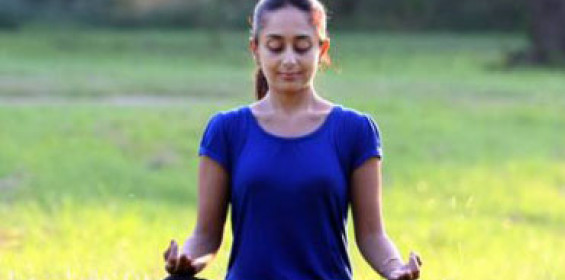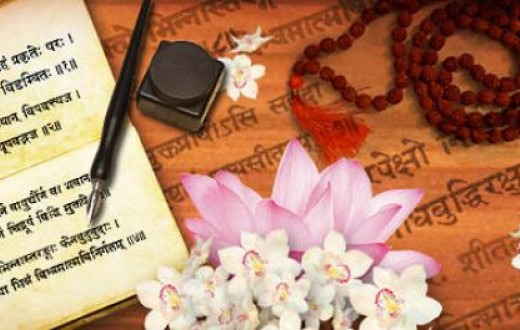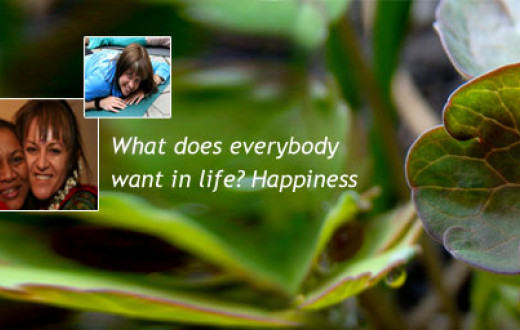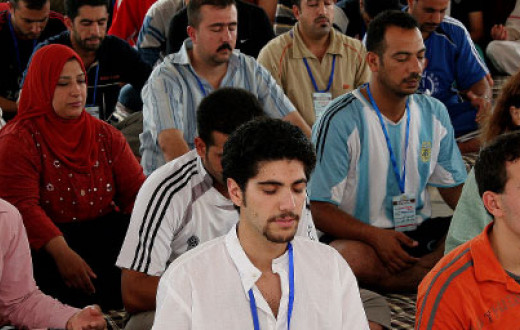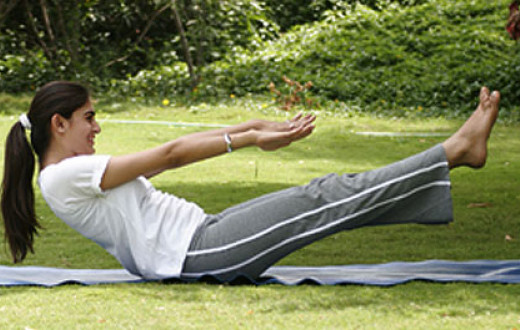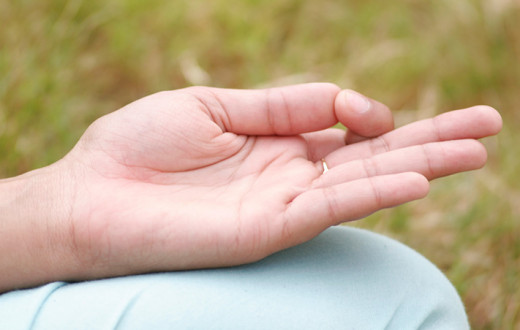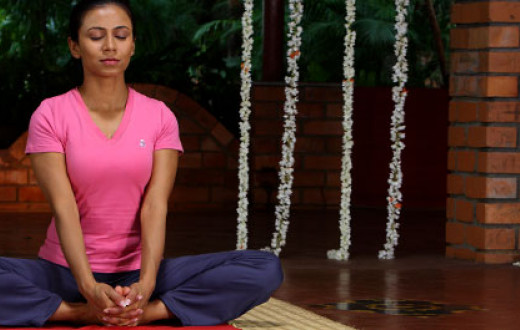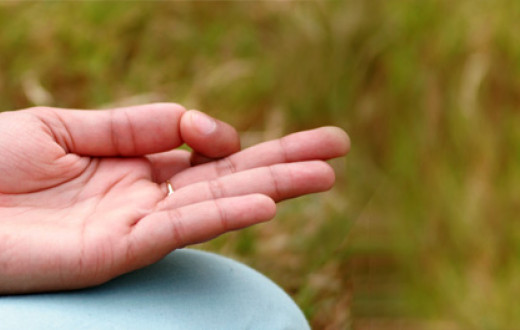Jal Neti is a technique that was used by yogis to stay disease-free, and most importantly to use their breath well for their yogic practices without any blockages. Just as brushing the teeth is dental hygiene, the practice of Jal Neti is nasal hygiene. This technique uses water to purify and clean the nasal path, right from the nostrils to the throat.
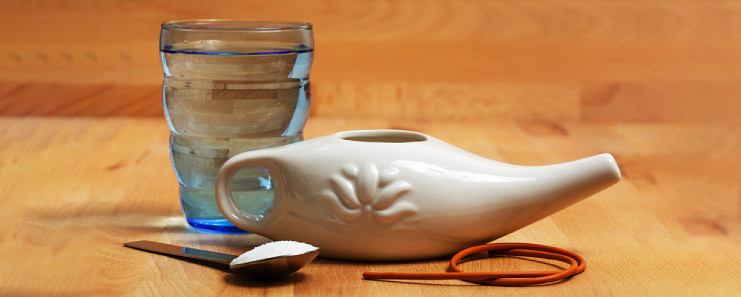 Jal Neti is one of the six-purification procedures or ‘Shatkarmas’ mentioned in Hatha Yoga Pradeepika.
Jal Neti is one of the six-purification procedures or ‘Shatkarmas’ mentioned in Hatha Yoga Pradeepika.
What do you need to do Jal Neti
A Jalneti pot
A pinch of salt
Lukewarm water
A Jal Neti pot is usually small and has a long spout on one side, which is small enough to be inserted gently into one of the nostrils during the process.
Benefits of Jal Neti

Daily practice helps maintain the nasal hygiene by removing the dirt and bacteria trapped along with the mucus in the nostrils.
It soothes the sensitive tissues inside the nose, which can assuage a bout of rhinitis or allergies.
It is beneficial in dealing with asthmatic conditions and making breathing easier.
It reduces tinnitus and middle ear infections.
It helps abate sinusitis or migraine attack.
It can alleviate upper respiratory complaints like sore throats, tonsils, and dry coughs.
It can clear the eye ducts and improve vision.
Clearing of nasal passages helps improve the sense of smell and thereby improves digestion.
It calms the nervous system and the mind. It also helps relieve stress and brings clarity to the mind.
People have experienced a reduction in their anger by practicing Jal Neti regularly.
It helps improve the quality of your meditation.
Jal Neti precautions
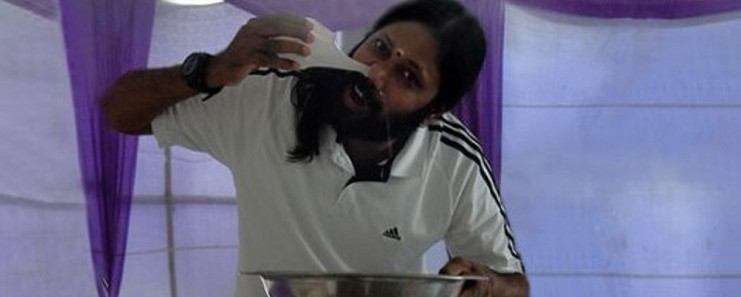
The nose should be dried properly after the process.
People with high blood pressure should be careful during this part. If one feels dizzy while drying the nose, then it should be done standing upright.
Take care that you do not leave any water in the nasal passages as it might cause an infection.
Like any other yogic practice, learn it from an expert practitioner.
Jal Neti goes beyond nasal cleansing and helps in aligning your body, mind, and soul. Hence, it should be practiced daily and not only when one has a nasal blockage or cold.
Want healthy Lifestyle?
Dr. Sejal Shah, a doctor, and a Sri Sri Yoga expert says, “Don’t get daunted by the description. It is not as difficult as it sounds. Usually, when people hear about Jal Neti, their first reaction is – how can I put water inside the nose? But once they do it, the same people come back and say – this is so easy and amazing! This has been my experience with all my students.”
Learn to practice Jal Neti at a Sri Sri Yoga Level 2 program.
Whether it's dealing with blood pressure, hair fall, or getting a glowing skin, the processes taught in the Art of Living Meditation and Breath Workshop helps it all. But wait, there's so much more. Enjoy optimal health and inner freedom.
FAQ's on breath-free with Jalneti
We breathe through our mouth in jal neti kriya. We do not breathe through the nose as water goes in through the nose with the help of a long spout on a jal neti pot.
Yes Jal Neti kriya can go wrong only if you do not practice under the expert's guidance. Using unsterilised water (tap water) instead of sterilised water can cause serious nasal infections. In correct use of jal neti pots can also hurt the nasal lining.
Properly breathe free with jal-neti- does not have any side-effects. Over doing of any good thing becomes detrimental. Similarly, overuse of same jal neti pots, too saline water, high temperature of water are some causes of jal neti kriya side effects. For example, itching and irritation to nasal lining.
"After Jal neti kriya one should not be careless about the wet nasal pore. They should be dried properly after the kriya. We should not come out in open cold air just after jal neti. If you have high blood pressure and feel dizzy, then practice jal neti standing upright. It is best to do it in guidance of a yoga teacher. "
Sea salt or sendha namak is used for experiencing jal neti benefits.
Jal Neti should be practiced daily at least once preferably in the morning. Can also practice in the evening. Better to avoid at night if it gets too cold.
Those who suffer with bleeding nose should avoid jal neti.









